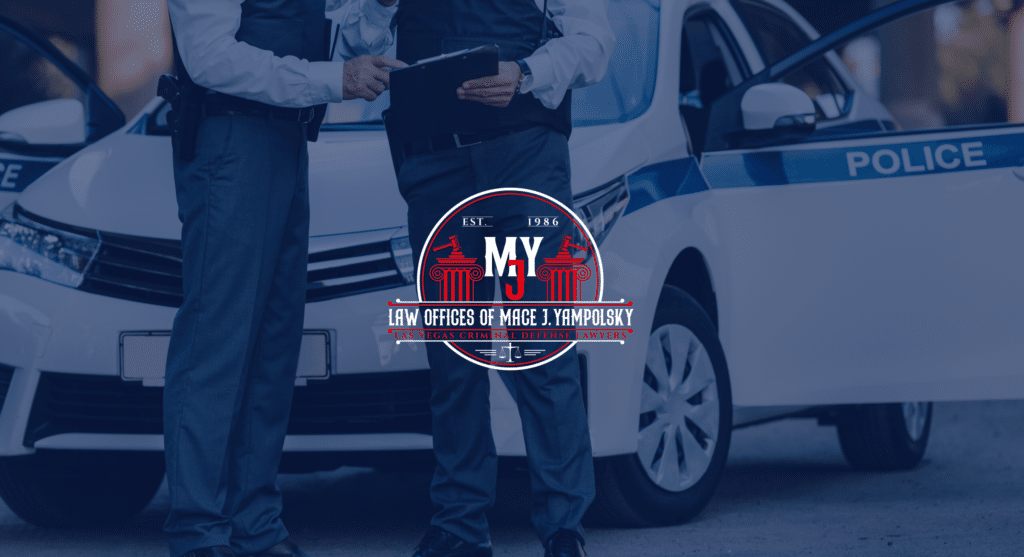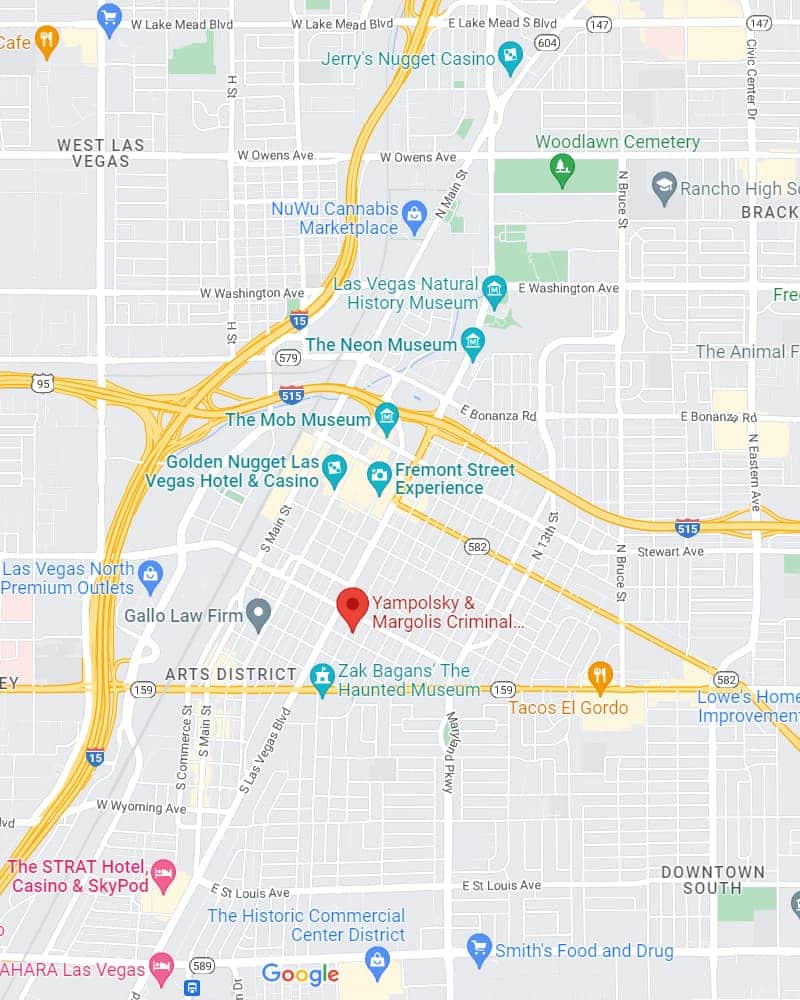Nevada State Drug Laws At A Glance
Drugs have always been considered illegal in the justice system. Although drugs have always been illegal in some form, the penalties change as time goes on. The elements that contribute to the severity of the consequences have much to do with the difference in whether the defendant is in possession of the drug for personal use or with an intent to distribute it.
The least consequential level of possession depends on if there was an amount that indicated personal use, such as under one ounce of marijuana or less than three and a half grams of cocaine. Contrarily, if for example, an individual has more than three and a half grams of cocaine, even if they were intending that quantity for personal use, Nevada state law recognizes this quantity as possession of a controlled substance with intent to sell. This could be charged several different ways, such as the sale of a controlled substance, or trafficking of a controlled substance. Trafficking is taken much more seriously, as it carries much more severe penalties with it.
Trafficking
Trafficking for a controlled substance for Schedule I or II narcotics with four to fourteen grams is considered a Category B felony, which carries one to six years in prison with the ability to go on probation. Trafficking a controlled substance with 14 to 28 grams carries two to ten years in prison with no option for probation, and a maximum fine of $20,000. The highest trafficking charge is when an individual is found in the possession of over 28 grams of Schedule I or II narcotics results in three to fifteen years in prison with no probation. Because of the severity that comes with a drug trafficking charge in Nevada, a competent attorney will do everything they can to reduce the charges of their client in order for them to receive the least extreme charges possible.
Very important factors in trafficking cases are criminal history and the quantity of the drug. If one has been convicted of a past drug charge, then this will be considered in the overall prosecution of the case. There is a wide range of sentencing for drug trafficking crimes, so the specifics of each case play key roles in what the outcome will ultimately be.
Federal Drug Trafficking Charges
Being convicted of a federal drug crime is generally much more substantial and handled differently than at the state level. There is a minimum sentencing of five years and no more than forty years for the first offense, followed by a fine of up to five million dollars for an individual, and up to twenty-five million dollars for a non-individual. For a second offense federal drug trafficking charge, the penalties are no less than ten years and no more than life in prison, and a fine of up to eight million dollars for an individual, and up to fifty million dollars for a non-individual. The penalties increase with the quantity of controlled substances found, as well as the number of additional crimes committed.
Possession With Intent To Distribute
Possession of a controlled substance with an intent to distribute occurs when there is more of that drug to be warranted as personal use, but less than a trafficking charge. Schedule I and II drugs are held in a more serious bracket than III, IV, and V drugs, and the consequences will reflect this.
For Schedules I and II substances such as cocaine, heroin, ecstasy, LSD, or GHB:
- First conviction: A category D felony, punishable by one to four years in prison and/or up to a $5,000 fine.
- Second conviction: A category C felony, carrying one to five years in prison and/or up to a $10,000 fine.
- Third or subsequent conviction: A category B felony, resulting in three to fifteen years in prison and/or up to a $20,000 fine.
For Schedule III, IV, and V drugs such as Valium, codeine, Xanex, or cough suppressant:
- First and second convictions: A category D felony, punishable by one to four years in prison and/or a fine not exceeding $10,000.
- Third and subsequent convictions: A category C felony, resulting in one to five years in prison and/or a fine not exceeding $10,000.
It is important to know that possession with intent to distribute still depends on other factors such as the defendant’s criminal history and what schedule drugs they are. Retaining legal counsel to assess the particular circumstances is a crucial first step in resolving a possession with intent to distribute a charge. Every situation is different, and therefore, an experienced attorney will have the skills and expertise to effectively resolve the case and highlight mitigating factors that are applicable to the smooth resolution of the case.
Counterfeit Drug Sales
Another level of drug sale that is charged against by the state of Nevada is the sale of a controlled counterfeit substance. If an individual is selling something that resembles Schedule I or II drugs, claiming it is a specific narcotic, or in possession of an imitation drug, this is typically prosecuted as a misdemeanor in the state of Nevada. This carries up to six months in jail and/or up to $1,000 in fines.
If an individual is over the age of 18 and sells counterfeit drugs to someone under 18, this is prosecuted as a category C felony. In this case, the defendant would face one to five years in prison, up to $5,000 in fines, and potentially compensation for the child’s drug rehabilitation.
It is important to know that when it comes to imitation drug sales in Nevada, the defendant’s state of mind is a key element in the validity of the case. If the defendant is telling an individual that they are buying a specific controlled substance, then the state of Nevada considers this a counterfeit drug sale transaction.
Get information regarding The Laws Relating to Drug Possession and Intent to Sell by calling the law office of Law Offices of Mace J. Yampolsky Criminal Defence for a FREE Initial Consultation at (702) 385-9777.





